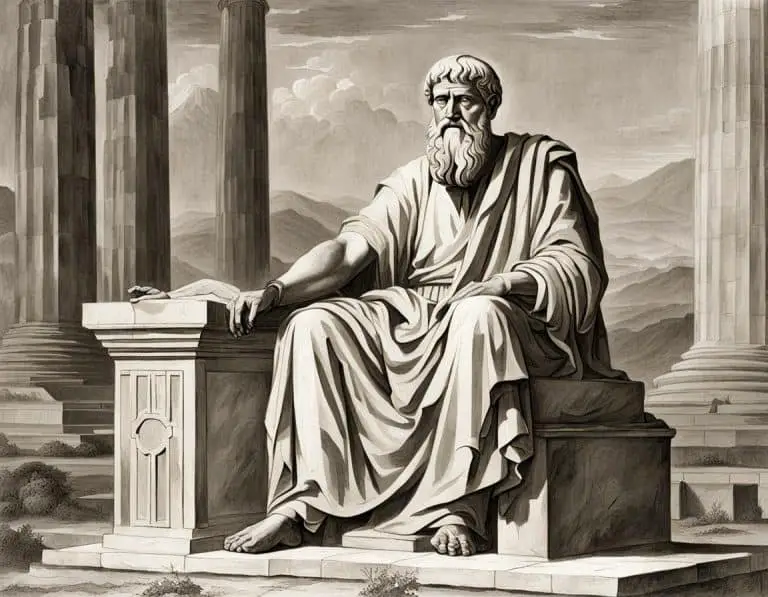Socrates’ Teaching Style
Socrates was known for his unique teaching style that set him apart from other philosophers of his time. Rather than lecturing his students, he engaged them in dialogues and discussions, challenging their beliefs and encouraging critical thinking. Through this method, Socrates aimed to provoke self-reflection and promote a deeper understanding of the world. His use of thought-provoking questions, known as the Socratic method, pushed his students to question their assumptions and strive for intellectual growth.
This interactive approach made Socrates a revered figure in Athenian society, as he was seen as a mentor who inspired his followers to seek wisdom and pursue virtue. By fostering an environment of open inquiry and debate, Socrates encouraged his students to think for themselves and develop their own moral compass. His teaching style not only influenced Plato, who became his most famous disciple, but also left a lasting impact on the nature of education and philosophical inquiry.
Inspiration for Plato’s Pedagogy
Plato’s pedagogy was profoundly influenced by the teachings and methods of his mentor, Socrates. Socrates was known for his dialectical approach, engaging students in critical thinking and questioning to arrive at deeper truths. This method of inquiry, known as the Socratic method, emphasized the importance of self-discovery and active participation in the learning process. Plato, inspired by Socrates, adopted a similar approach in his own teachings, encouraging students to challenge assumptions, think independently, and seek knowledge through dialogue and debate.
Plato’s pedagogy also reflected Socrates’ unwavering commitment to fostering intellectual growth and ethical development in his students. Like Socrates, Plato believed that education should not only cultivate the mind but also nurture the soul. He sought to instill virtues such as wisdom, courage, and justice in his students, guiding them towards a deeper understanding of themselves and the world around them. By drawing on the wisdom of his mentor, Plato’s pedagogical methods emphasized the transformative power of education in shaping individuals into morally upright and intellectually curious beings.
Socrates’ Search for Universal Truth
Socrates, the renowned philosopher of ancient Greece, was deeply engrossed in the pursuit of universal truth. His relentless quest to uncover the fundamental principles governing existence and knowledge was a central tenet of his philosophical inquiries. Rather than focusing on superficial truths or appearance, Socrates delved into the realm of abstract concepts and overarching principles that underpinned reality.
For Socrates, the search for universal truth meant questioning assumptions, scrutinizing beliefs, and engaging in dialogue with others to arrive at a deeper understanding of the world. He believed that by challenging commonly held notions and seeking clarity through rigorous inquiry, one could inch closer to the truth that permeated all aspects of life. Socrates’ commitment to this pursuit not only shaped his own philosophical outlook but also left a lasting impact on his disciple Plato, who would later explore the concept of universal truth in his own works.
Influence on Plato’s Epistemology
Socrates’ emphasis on questioning and critical thinking deeply influenced Plato’s epistemological beliefs. Plato, inspired by Socrates, proposed that knowledge is not just about acquiring information but about engaging in a process of inquiry and self-examination. This assertion forms the foundation of Plato’s epistemology, as he believed that true knowledge arises from a reflective and dialectical method of inquiry rather than mere acceptance of conventional wisdom.
Plato’s dialogues often depict Socrates engaging in philosophical discussions where he challenges the conventional beliefs of his interlocutors. Through these dialogues, Plato showcases how Socrates’ method of questioning leads to a deeper understanding of fundamental truths. This commitment to critical inquiry and the pursuit of genuine knowledge was central to Plato’s epistemological framework, as he believed that this rigorous process of examination was essential for reaching a more profound understanding of reality.
Socrates’ Role in Athenian Society
Socrates’ role in Athenian society was both prominent and controversial. He challenged the norms and beliefs of the time through his philosophical inquiries, leading him to clash with the political and social structures of ancient Athens. Socrates’ persistent questioning of traditional values and authority figures made him a figure of fascination and suspicion among the citizens of the city-state.
Despite facing scrutiny and eventual condemnation, Socrates stood firm in his commitment to seeking truth and encouraging critical thinking among his followers. His dedication to probing into the depths of human knowledge and morality left a lasting impact on Athenian society, fostering a culture of intellectual debate and self-examination. Socrates’ legacy as a gadfly of Athens continues to inspire thinkers and philosophers to challenge established conventions and uphold the pursuit of wisdom above all else.
Impact on Plato’s Political Philosophy
Socrates’ philosophical views left a profound impact on Plato’s political philosophy. Plato was deeply influenced by Socrates’ critical approach to questioning the existing political systems in ancient Athens. Socrates’ belief in the importance of questioning authority and seeking the truth without fear of consequences resonated strongly with Plato, shaping his ideas on governance and leadership.
Plato’s political philosophy was a reflection of Socrates’ emphasis on the importance of justice, virtue, and the pursuit of the common good. He believed that a just society could only be achieved if rulers were guided by reason and virtue, rather than personal gain or power. Plato’s idealistic vision of a philosopher-king ruling with wisdom and integrity was directly inspired by Socrates’ teachings on the moral responsibilities of those in positions of authority.
Related Links
What was Plato’s response to Socrates’ influence?
How did Socrates mentor Plato?
